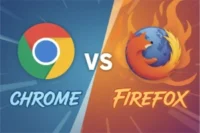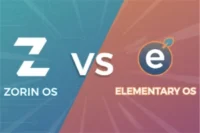Slack vs Microsoft Teams: Which Collaboration Tool is Better?
Published: 22 Mar 2025
Collaboration tools have become essential for businesses, teams, and remote workers. Two of the most popular communication platforms are Slack and Microsoft Teams. Both offer messaging, file sharing, and integration features, but they serve different user needs.
Slack is known for its flexibility and integrations, while Microsoft Teams is preferred by businesses using the Microsoft 365 ecosystem.

In this article, we will compare Slack vs Microsoft Teams in detail to help you choose the best platform for your needs.
Quick Comparison Table: Slack vs Microsoft Teams
| Feature | Slack | Microsoft Teams |
| User Interface | Simple, customizable, and lightweight | Structured, integrates with Microsoft 365 |
| Messaging | Channels, DMs, and threads | Channels, threads, and deep integration with Office 365 |
| Video Calls | 1:1 calls in free plan, up to 50 participants | Supports large meetings (up to 1,000 participants) |
| File Sharing | 1GB file limit, integrates with Google Drive & Dropbox | Uses OneDrive & SharePoint, real-time Office editing |
| Integrations | 2,400+ third-party apps | Fewer integrations but strong Microsoft app support |
| Security | End-to-end encryption, basic compliance | Enterprise-grade security, HIPAA & GDPR compliance |
| Best For | Startups, small businesses, flexible teams | Enterprises, corporate teams, Microsoft 365 users |
| Pricing | Free plan with limits, Pro plan at $7.25/user | Free plan, Microsoft 365 plans start at $6/user |
Key Differences Between Slack and Microsoft Teams
Let’s explore key differences between slack and microsoft teams in detail to help you choose better:
1. User Interface and Ease of Use
The interface plays a very important role in user experience.
Slack:
- Simple and easy-to-use interface with customizable themes.
- Channels and direct messages for team communication.
- Allows users to create custom shortcuts for efficiency.
- Quick access to pinned messages and favorite channels.
- More flexible and lightweight compared to Microsoft Teams.
Microsoft Teams:
- Integrated into the Microsoft 365 ecosystem.
- Tabs for chats, video calls, file sharing, and apps.
- More structured and suited for business collaboration.
- Comes with built-in task management and calendar tools.
- Slightly more complex due to its multiple features.
2. Communication Features
Both platforms offer messaging and calling, but with different capabilities.
Slack:
- Real-time messaging with channels and direct messages.
- Supports emoji reactions, GIFs, and custom Slackbots.
- Voice and video calls available (limited in free plan).
- Threaded conversations for organized discussions.
- Third-party app integrations enhance communication.
Microsoft Teams:
- Offers threaded conversations and team-based chat.
- Fully integrated video conferencing and meeting scheduling.
- Supports live captions and meeting transcripts.
- Better suited for business meetings and large teams.
- Deep integration with Microsoft Outlook and Calendar.
3. File Sharing and Storage
File management is important for teamwork and collaboration.
Slack:
- Supports file uploads up to 1GB per file.
- Integrates with Google Drive, Dropbox, and OneDrive.
- Limited storage in the free version (90-day message history).
- File search and organization within channels.
- Less structured compared to Microsoft Teams.
Microsoft Teams:
- Uses OneDrive and SharePoint for file storage.
- Provides seamless collaboration on Office 365 documents.
- Supports real-time co-editing of Word, Excel, and PowerPoint files.
- Larger file storage capacity compared to Slack.
- Built-in compliance and security controls for file sharing.
4. Integration with Other Tools
Both platforms support third-party apps, but in different ways.
Slack:
- Over 2,400 third-party integrations.
- Works with Google Drive, Zoom, Trello, and Asana.
- Custom Slackbots for automation and workflow management.
- More flexibility in connecting external apps.
- No deep integration with Microsoft 365 apps.
Microsoft Teams:
- Native integration with Microsoft 365 apps (Word, Excel, Outlook).
- Supports Power Automate for advanced automation.
- Works well with enterprise tools like Dynamics 365.
- Fewer third-party integrations compared to Slack.
- Best suited for organizations using Microsoft services.
5. Video Conferencing and Meetings
Meetings and video calls are essential for remote work and collaboration.
Slack:
- Supports 1:1 video calls in the free version.
- Up to 50 participants in paid plans.
- Integrates with Zoom and Google Meet.
- No built-in scheduling or calendar integration.
- Basic video call features compared to Microsoft Teams.
Microsoft Teams:
- Supports meetings with up to 1,000 participants.
- Built-in scheduling with Outlook integration.
- Includes screen sharing, recording, and live captions.
- Best for formal business meetings and webinars.
- Requires Microsoft 365 subscription for advanced features.
6. Pricing and Plans
Pricing plays a key role in choosing the right platform.
Slack:
- Free Plan: Limited message history (90 days) and 1:1 calls.
- Pro Plan: $7.25/user per month with unlimited history and integrations.
- Business Plan: $12.50/user per month with advanced security.
- Enterprise Grid: Custom pricing for large organizations.
Microsoft Teams:
- Free Plan: Unlimited chat, 60-minute meetings, 5GB storage.
- Microsoft 365 Business Basic: $6/user per month with meeting recording.
- Microsoft 365 Business Standard: $12.50/user per month with advanced features.
- Enterprise Plans: Custom pricing for large enterprises.
7. Security and Compliance
Security is essential for protecting business data.
Slack:
- End-to-end encryption for messages and files.
- Supports enterprise security standards.
- Offers data loss prevention and compliance tools.
- Less strict compliance compared to Microsoft Teams.
- External collaboration features require additional security settings.
Microsoft Teams:
- Enterprise-grade security with multi-factor authentication.
- Fully compliant with HIPAA, GDPR, and ISO standards.
- Built-in data loss prevention and encryption.
- Stronger security features compared to Slack.
- Ideal for regulated industries like healthcare and finance.
Which is Better?
The choice between Slack and Microsoft Teams depends on your team’s needs:
- Slack is better for startups, small businesses, and teams needing flexibility. It excels in third-party integrations and a lightweight, user-friendly interface.
- Microsoft Teams is ideal for enterprises, corporate teams, and organizations using Microsoft 365. It offers deep Office app integration, better security, and enterprise-grade video conferencing.
If you need customization and external integrations, go for Slack. But if your team is already using Microsoft 365, then Microsoft Teams is the smarter choice.
Conclusion
Slack and Microsoft Teams are both powerful collaboration tools, but they serve different needs. Slack is best for startups, small teams, and businesses that need flexibility and third-party integrations. Microsoft Teams is ideal for corporate environments and enterprises that rely on Microsoft 365.
If you need seamless integration with Office apps, Microsoft Teams is the better choice. However, if you prefer a more open and customizable platform, Slack is a great option. The right tool depends on your team’s workflow and collaboration requirements.
FAQs about Slack and Microsoft Teams
Here are some of the most FAQs related to Slack and Microsoft Teams:
Slack is better for startups because of its flexible integrations and user-friendly interface. It allows small teams to collaborate efficiently with various third-party tools.
Microsoft Teams offers a free version, but full functionality, including advanced meeting features and Office 365 integration, requires a Microsoft 365 subscription.
Yes, Slack can be integrated with Microsoft Teams using third-party connectors, but it does not offer native integration like other Microsoft apps.
Microsoft Teams is better for video conferencing, as it supports larger meetings, built-in scheduling, and advanced features like live captions and meeting recording.
Slack has limited storage in its free version, whereas Microsoft Teams offers OneDrive and SharePoint for seamless file sharing with more storage space.
Slack and Microsoft Teams have similar pricing, but Microsoft Teams provides more value for businesses that already use Microsoft 365.
Yes, it’s possible to use both platforms, but managing two collaboration tools can be complex and may create workflow inefficiencies.
Microsoft Teams has stronger built-in security and compliance features, making it a better choice for enterprises with strict security requirements.
Yes, both Slack and Microsoft Teams have mobile apps for iOS and Android, allowing users to communicate and collaborate on the go.
Microsoft Teams is better for large enterprises due to its deep integration with Microsoft 365, security features, and scalability.

- Be Respectful
- Stay Relevant
- Stay Positive
- True Feedback
- Encourage Discussion
- Avoid Spamming
- No Fake News
- Don't Copy-Paste
- No Personal Attacks

- Be Respectful
- Stay Relevant
- Stay Positive
- True Feedback
- Encourage Discussion
- Avoid Spamming
- No Fake News
- Don't Copy-Paste
- No Personal Attacks





